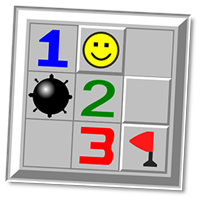During last week’s class I kept making the connection with open education and pharmaceutical companies. What drives the development of new drugs? Corporations fund research, this results in life saving/life changing medications to be created. Companies then charge for this medication to cover costs and make a profit (a lot of profit). This money is then used to fund more research and create more lifesaving/life changing drugs. To ensure that those with less financial means can access those drugs, governments limit the amount of time companies can maintain patents on those drugs. It then becomes public and any other company can make cheap replicas. The initial run of medication encouraged by capitalism promotes innovation. That is the idea, but obviously it is not that simple. What about those that died because they were sick during the initial patent? What about those that still cannot afford the pills after it is in the public domain? What about those that could survive with the latest version, but their insurance won’t cover this new pills cost?

Now let’s look at textbooks. Companies are paid by governments to develop academic documents. Those companies then charge schools to pay for said textbooks. Updates do not make financial sense and schools will not pay for those updates because the initial costs of those books was so much. Jump ahead 12 years and we are using science textbooks that reference someone training for the 2010 Vancouver Olympics or the very current use of space shuttles. Budgets are cut, publishers do not receive the funding, and new books are never made. Teachers then take resources they can find, try to update and provide students with current information and are sued for violating copyrights. We have been given the medicine and it is better than nothing, but it’s years past the expiry date. Our patients, our students are now suffering.

We are in a world where we can take information and “remix it” to suit our classrooms needs. We no longer have to rely on that pharmaceutical medicine, that Pearson textbook. Lawrence Lessig’s analogy of an airplanes flight path not violating trespassing laws is an interesting take on this remixing that we are doing. While educators may not be manipulating a piece of pop culture, we are manipulating research, texts, and a variety of other resources that are stamped with a circled C or R. But how many of us have left the textbooks all together and now create our own resources from bits and pieces we have found online? How many of us share those resources? How far do we share them? In this way we are making our own open education, however it is within the confines of our institutional walls. I have not uploaded my ELA lessons, but maybe I should.
With access to the internet I have millions of lesson ideas to go through. I did not need to pay a fee to use them, or request them as part of a yearly order. I did pay to be educated on how to best use them, but some could argue that a few YouTube videos and some volunteer time in a class could have done the same thing.
I am currently using the next version of a textbook for math. MathUp is an online resource. It can be updated easily and I can decide what to use in the same way I could choose questions or chapters to assign from a textbook. To suit my needs I have begun to “remix” it. I take sections and images and compile them into my own lesson. Sometimes I follow the proposed outline, sometimes I abandon it entirely. Despite this, it is not open education. My division pays a fee to access this program, just as it paid for textbooks in the past. If I upload my version of these lessons I would be violating copyright laws; even though large sections are not recognizable from the program itself. I am soaring far above the ground, but I am trespassing.

So when do we abandon this? Open Education requires (as discussed in last class) an economy of sharing. Have we reached the point where we no longer need companies like Pearson to develop programs? Do we need them in the same way we rely on Phizer? Is the answer funding through taxes? In some ways what teachers are doing is exactly that. We are paid through taxes, we develop lessons and programs, we pass on those lessons to others. They in turn develop them and pass them on to someone else. But I feel like there is something missing. What is driving innovation? Is it an intrinsic need to share and do better? Do we need that first patented pill? Do we need that copyrighted textbook? Do we need that original song to mash up?
I’ve rambled on, but this is where my brain goes with Open Education. It seems like a dream at times and others it feels like we are already there.


